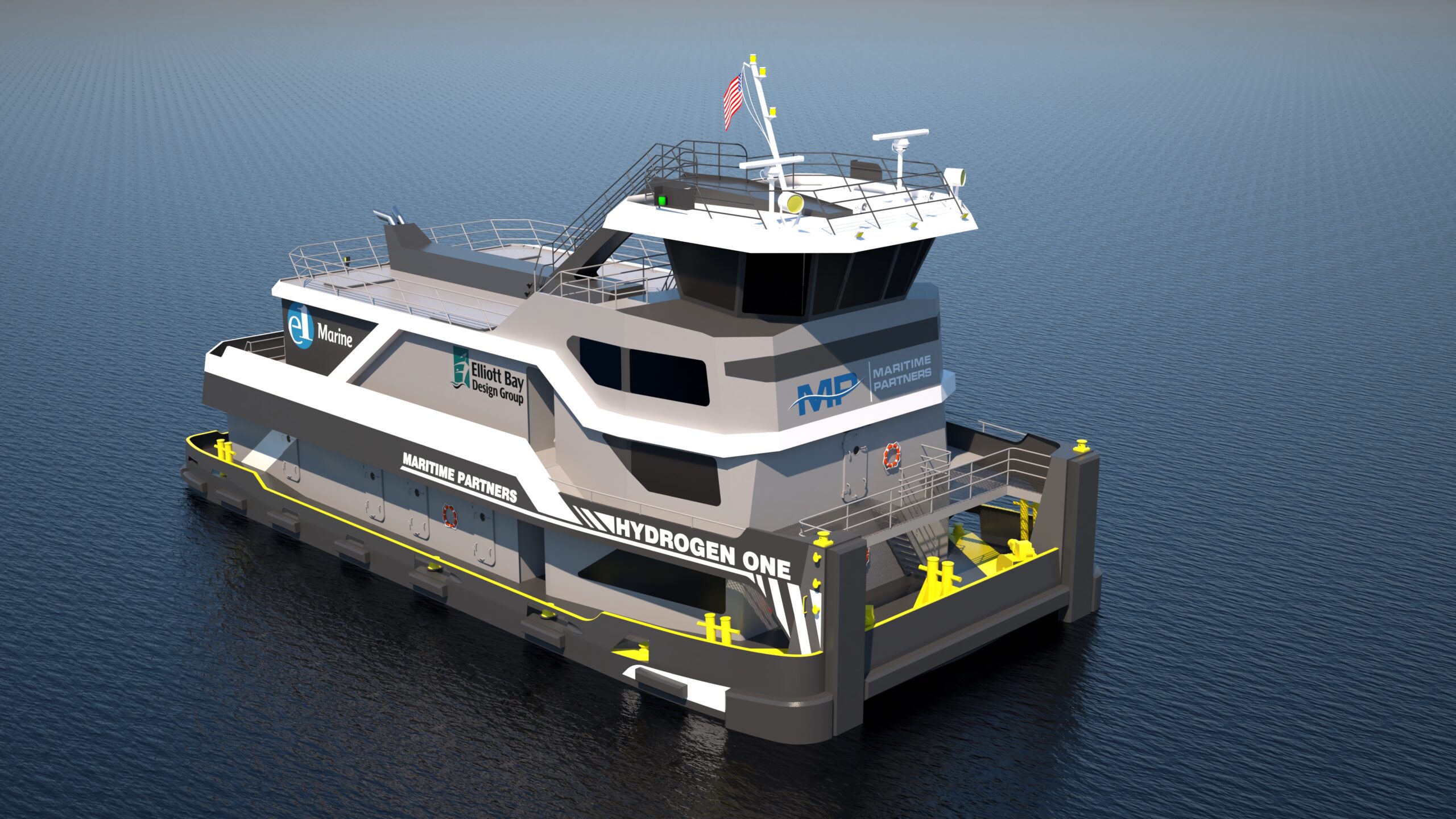The ocean-going tanker Pacific Jasper that had been taking gasoline toward the U.S. Gulf stopped on its voyage and is now stationed east of the Bahamas. If the halt is prolonged, the fuel is likely to fetch higher premiums in the New York Harbor area.
By Sheela Tobben and Jeffrey Bair (Bloomberg) —
Motorists from New York to Atlanta face a growing threat of fuel shortages and surging prices as a cyberattack that crippled North America’s biggest petroleum pipeline drags into its third day.
Colonial Pipeline said on Sunday that it was still developing a plan for restarting the nation’s largest fuel pipeline — a critical source of supply for the New York region — and would only bring it back when “safe to do so, and in full compliance with the approval of all federal regulations.” Gasoline futures on Nymex surged by as much as 4.2% in trading overnight.
The attack comes just as the nation’s energy industry is preparing to meet stronger fuel demand from summer travel. Americans are once again commuting to the office, planning major travel for the first time and booking flights. A prolonged disruption along the pipeline system threatens to send average U.S. gasoline retail prices above $3 a gallon for the first time since October 2014, further stoking fears of inflation as commodity prices rally worldwide.
Gasoline for June delivery was 0.6% higher at $2.14 a gallon at 9:48 a.m. in New York. Futures prices have gained 40% this year, helped by the recovery from the worst effects of the pandemic.
Tankers Booked
With little to no clarity over when the system will return, traders are seeking vessels to deliver fuel to the U.S. East Coast that could run short following the Colonial shutdown.
Four vessels have been provisionally chartered to send diesel or gasoline from Europe to the U.S. Atlantic Coast, according to Danish oil-product tanker company Torm A/S. The ships are larger than the usual tankers that haul gasoline on the route and are likely in response to the pipeline’s outage, the company said in a statement.
“If the outage persists, we expect that imports to the U.S. will increase, initially from Europe but potentially also from Asia, which would positively impact freight markets,” it added.
Some tankers are also being secured to temporarily store gasoline in the U.S. Gulf in the event of a prolonged shutdown, according to market participants who asked not to be identified because the information isn’t public.
Increased Security
Colonial halted all operations on its system late Friday after suffering a ransomware attack that affected some of its IT systems.
The event is just the latest example of critical infrastructure being targeted by ransomware. Hackers are increasingly attempting to infiltrate essential services such as electric grids and hospitals. The escalating threats prompted the White House to respond last month with a plan to increase security at utilities and their suppliers. Pipelines are a specific concern because of the central role they play in the U.S. economy.
“It’s an all-hands-on-deck effort right now,” U.S. Commerce Secretary Gina Raimondo said of federal government actions as the shutdown drags on. “We are working closely with the company, state and local officials to make sure that they get back up to normal operations as quickly as possible and there aren’t disruptions in supply.”
The White House pulled together an inter-agency task force to address the breach, including exploring options for lessening its impact, according to an official. President Joe Biden can invoke an array of emergency powers to ensure supplies keep flowing to big cities and airports along the East Coast.
Rules Eased
Some rules curbing domestic transportation of fuel have been eased to help deal with any shortages. That doesn’t extend to waiving Jones Act, a measure that would allow foreign tankers to help shuffle more petroleum products between U.S. ports.
“There are ways to get around this,” said Jeff Currie, global head of commodities at Goldman Sachs Group Inc. “Importantly, the Department of Transportation has lifted any restrictions around trucking and boat transportation, which means you can use other avenues of transportation to deal with this.”
Colonial is a major source of gasoline, diesel and jet fuel to the East Coast from the nation’s refining belt along the Gulf Coast. It has the capacity to send about 2.5 million barrels (105 million gallons) a day from Houston as far as North Carolina, and another 900,000 barrels a day to New York.
An ocean-going tanker that had been taking gasoline toward the U.S. Gulf stopped on its voyage and is now stationed east of the Bahamas, data compiled by Bloomberg show. If the halt is prolonged, the fuel is likely to fetch higher premiums in the New York Harbor area.
The attack appeared to use a ransomware group called DarkSide, according to Allan Liska, senior threat analyst at cybersecurity firm Recorded Future. The cybersecurity firm FireEye Inc. said its Mandiant incident response division was assisting with the investigation.
Extortion Fee
Ransomware cases involve hackers seeding networks with malicious software that encrypts the data and leaves the machines locked until the victims pay the extortion fee. This would be the biggest attack of its kind on a U.S. fuel pipeline.
The national gasoline average stood at $2.96 a gallon Friday, according to auto club AAA. With gasoline inventories ample, the pump price wasn’t expected to tick much higher until Memorial Day at the end of May, which is traditionally viewed as the start of the U.S. summer driving season. If the pipeline doesn’t restart soon it will accelerate the move higher.
“I think we’re at strong odds for it by Memorial Day given current trends,” said Patrick De Haan, head of petroleum analysis at Gas Buddy.
Related Book: Oil on the Brain: Adventures from the Pump to the Pipeline by Lisa Margonelli
A key concern at present is meeting product demand in the U.S. Southeast, which is especially dependent on the Colonial system, people familiar with the situation said. Drivers in landlocked and car-dependent Atlanta may be the first to feel the pinch at the pump.
“Atlanta will be one of the earlier sore spots, along with eastern Tennessee, and perhaps the Carolinas,” De Haan said.
The Northeast can secure gasoline shipments from Europe but it will come at an increasing cost the longer the pipeline stays shut. The fuel’s premium to crude in northwest Europe had jumped by more than 5% in intra-day trading earlier on Monday but was still down week-on-week.
“The longer it lasts, the more bullish it will be for refined products on the East Coast,” said Warren Patterson, head of commodities strategy at ING Groep NV. “This will likely also drag European product prices higher, as we see more waterborne cargoes needing to go into the U.S. East Coast to meet the shortfall.”
Last year, the U.S. imported about 235,000 barrels a day of gasoline from Europe, according to bill of lading and tanker-tracking data compiled by Bloomberg. Stocks of the road fuel in PADD 1 — the U.S. East coast — are below the five-year average, at close to 65 million barrels, according to the latest EIA data.
Airports on the East Coast, which continue to have some of the steepest drops in air traffic due to the pandemic, have been operating smoothly Sunday, according to the flight-tracking website FlightAware.com.
In the meantime, fuel producers including Marathon Petroleum Corp. are weighing alternatives for how to ship their products to the Northeast.
One potential route is the Kinder Morgan-operated Plantation Pipeline, even though it only extends as far north Washington D.C. and has a capacity of 720,000 barrels a day, far short of Colonial’s. Kinder said Sunday it’s working with customers to accommodate additional barrels during Colonial’s outage, and that Plantation is deferring where possible any non-essential maintenance that might otherwise reduce flow rates.
While all of the major segments of Colonial’s system remain offline, some smaller so-called laterals connecting specific fuel terminals to delivery points are in service, the company said. That laterals gave some traders hope that the full network may be back online within a week.
“Hopefully it is a sign that they have made progress either negotiating with those responsible for the attack or have found ways to operate around it, said Debnil Chowdhury, head of Americas refining at IHS Markit. “However to avoid product shortages, all efforts should be made to avoid a 5+ day outage of the main lines.”
Inventories offer minimal cover, ClearView Energy Partners said in a research note. Tankers leaving Rotterdam could take up to 14 days to make the trip to the New York Harbor. The Midwest could theoretically send some of its supplies to the East Coast via rail and barge, but the region’s inventories are tighter than in previous years, ClearView said.
“The Colonial outage comes at a critical juncture for the recovering U.S. economy: the start of the summer driving season,” ClearView said. “We therefore think lawmakers could begin a ‘blame game’ immediately, and a sustained disruption that leads to a significant pump price spike could increase prospects of domestic policy interventions.”(Updates with gasoline futures price in fourth paragraph)
–With assistance from Alex Longley, Gerson Freitas Jr., Tony Czuczka, Alan Levin, Jack Wittels, Prejula Prem, Alaric Nightingale, Brian Wingfield and Hanna Hoikkala.
Related Book: Oil on the Brain: Adventures from the Pump to the Pipeline by Lisa Margonelli
© 2021 Bloomberg L.P.

 Join The Club
Join The Club











